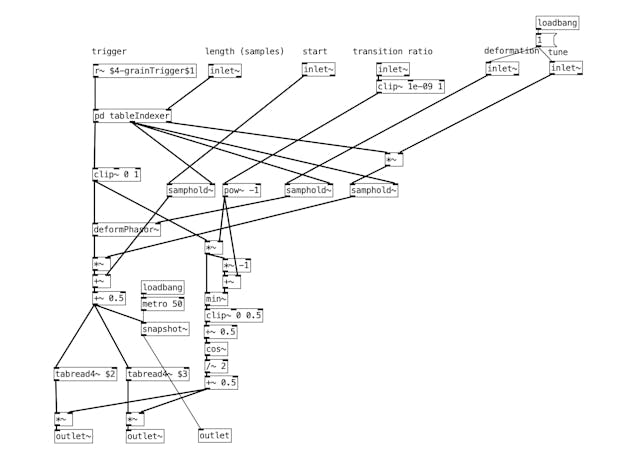James Lo

Artist Statement
I make sound scores for contemporary dance and theater, scores that sharpen each piece’s identity, add interpretive complexity, and influence how the performances are seen.
Formally, my scores consist of recordings that are partitioned into sections and layers to be cued to each performance. Depending on the piece, my raw materials might include found sound, speech, whispers, instrumental sounds, sampled music, or computer-generated sound. I often select and digitally manipulate sounds to create effects that play with the boundary between what’s real and what’s artificial. For example, I’ve paired field recordings of birdsong that sound simulated with computer-assembled violin passages that sound live. Drawing on my experience as a software engineer, I’ve built signal processors to assist in the creation of work, a number of which leave no technological imprint on their sonic output.
I primarily work in New York downtown contemporary dance, which is typically choreographed in silence or loosely coupled with the sound it was choreographed to, so I’m usually creating scores in reaction to what I see. While I love broad palettes, contrast, and surprise, sometimes a dance demands the opposite. A score can add depth by intimating oblique narratives or by creating equivocal meaning.
As someone who is drawn to sound that doesn’t have rhythm, harmony, or melody, I prefer to call myself a sound designer rather than a composer. The greatest compliment I ever received from an audience member was that they teared up at the ending of a piece but did not know why. My favorite review referred to my design as “sonic dramaturgy.”
- December 2023
Biography
James Lo is a sound designer, drummer, and software engineer who primarily works in New York downtown contemporary dance. His scores have been lauded for the crucial role they play in realizing the choreographic visions of his collaborators. Highlights of Lo’s work include Dogs (2006) by Sarah Michelson, Geography II: Tree (1999) by Ralph Lemon, State of Heads (1999) by Donna Uchizono, Waving to You From Here (1997) and Excessories (1995) by John Jasperse, and numerous scores for choreographers Molly Lieber and Eleanor Smith, Neil Greenberg, David Thomson, Jodi Melnick, Vicky Shick, Katie Workum, Maria Hassabi, Jennifer Monson, RoseAnne Spradlin, and Lucy Guerin.
As a drummer, Lo is best known for his work with the bands Live Skull and Chavez. He has performed in the ensembles of composers Rhys Chatham, Fast Forward, and David Linton, and can be heard on recordings by Will Oldham, Baby Dee, and Swans. His electronic and software designs have been used in works by Robert Ashley, Ben Neill, Matthew Ostrowski, Elizabeth Streb, and David Behrman.
Since 2012, Lo has created scores for Molly Lieber and Eleanor Smith, choreographers and performers who create work that interrogates sexism, trauma, and dance-world pathologies, often in incongruously humorous ways. Thick with pop-culture references, dissonant layers, and found sound, these scores amplify his collaborator’s sarcasm and focus their critique on American culture. Their evening-length work Body Comes Apart (2019) typifies this approach. It was commissioned by New York Live Arts and documented by The New York Public Library for the Performing Arts, Jerome Robbins Dance Division.
Lo’s most recent dance and theater works include: CETACEAN (2023) by Deke Weaver; Betsy (2022) by Neil Greenberg in collaboration with Zeena Parkins; These Five (2022) by Jodi Melnick; Standing in a Doorway and Calling It Dance (2021) by Vicky Shick; and Gloria (2021) by Molly Lieber and Eleanor Smith. His notable discography includes Cockfighters (Matador, 2017) and Better Days Will Haunt You (Matador, 2006) with the band Chavez, as well as Cloud One (Homestead, 1986) and Bringing Home The Bait (Homestead, 1984) with the band Live Skull.
Lo received New York Dance and Performance “Bessie” Awards in 1993 for his score for John Jasperse’s furnished/unfurnished, and in 1999 for his score for State of Heads by Donna Uchizono.
He earned a B.A. in East Asian Studies from Columbia University in 1983, and attended the New England Conservatory of Music and Columbia University’s School of General Studies.
